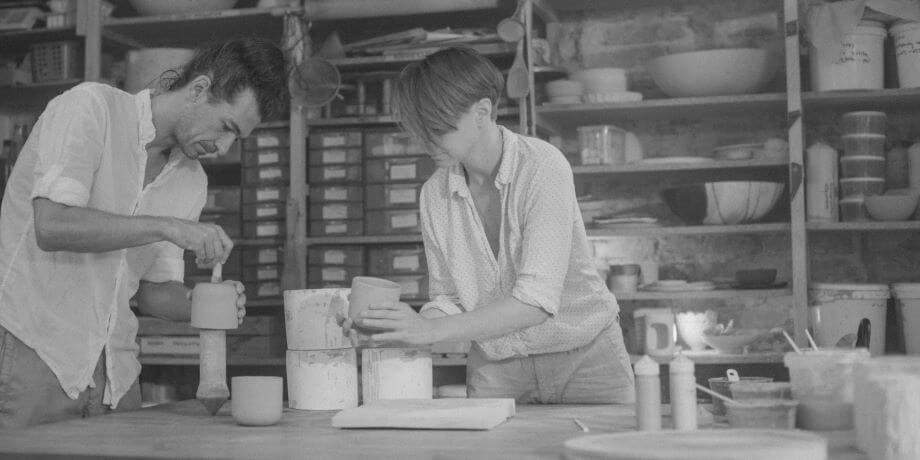Starting Pottery as a Hobby: Understanding the Costs and Opportunities

Pottery Hobby: Expensive or Affordable?
Is Pottery an Expensive Hobby? A Beginner's Exploration
If you're considering embarking on a journey into the world of pottery as a hobby, you might be asking, "How expensive is pottery as a hobby?" This comprehensive guide, designed for beginners, aims to demystify the costs associated with starting pottery as a hobby and explore the potential it holds as a fulfilling ceramic craft.
The Intrigue of Pottery for Beginners
Pottery, a form of ceramic hobbies, offers more than just item creation; it's an artistic expression cherished through the ages. As a beginner, you'll find pottery to be a hobby that nurtures creativity and provides relaxation. But before diving in, let's break down the financial aspect to see if pottery is an affordable hobby for you.
Initial Outlays in Starting Pottery as a Hobby
- Pottery Wheel: A central tool in pottery, the wheel's cost varies. Affordable options for hobby ceramic craft enthusiasts are available, with entry-level models starting at a few hundred dollars. Easy pottery wheel projects are a great way to start.
- Clay Selection: The raw material for your creations, clay prices vary based on type and quality. Expect to spend anywhere from $10 to $25 for a 25-pound bag.
- Essential Tools and Supplies: Basic pottery techniques require sculpting tools, trimming instruments, and glazes. While some costs can accumulate, these are generally one-time investments.
- Kiln Access: Firing your pottery is crucial. Owning a kiln can be costly, but shared access in community studios offers a budget-friendly solution.
- Studio Space: Consider the benefits of a home studio versus the collaborative environment of a community studio, especially when starting pottery as a hobby. Look for ceramic stores nearby or art supplies stores near me for your studio setup.
Managing Ongoing Expenses in Ceramic Hobbies
- Regular Clay and Glaze Purchases: As you delve deeper into pottery, ongoing expenses such as clay and glazes are inevitable. Bulk purchases from pottery clay supplies or glaze suppliers can be cost-effective.
- Kiln Use: Utilize community studio kilns or invest in a small kiln, depending on your commitment level.
- Maintenance: Upkeep of tools and equipment, which you can often find at a ceramic supply store or ceramic shops near me, is crucial for longevity and uninterrupted creativity.
Making Pottery an Affordable Hobby
- Pottery Classes: Ideal for beginners, classes offer a structured learning environment with access to equipment and materials. You can also explore pottery wheel project ideas here.
- Pre-Owned Equipment: A viable option for those questioning "Is pottery an expensive hobby?" Look for quality second-hand wheels and tools at ceramic hobbies stores or pottery shops near me.
- Community Engagement: Shared studio spaces can lower costs and provide a supportive network. Joining groups like ceramics experts or thrown elements pottery communities can be beneficial.
- DIY Approaches: Creating your own glazes or exploring thrown elements pottery can be a fun, cost-saving aspect of your ceramic hobbies.
- Gradual Growth: Start with the basics and expand your toolkit and skills as you grow in your pottery journey. What pottery sells best at craft shows? Start simple and work your way up to more complex projects.
Conclusion: Embracing Pottery as a Hobby
Starting pottery as a hobby can be as economical or as lavish as you choose. By making informed decisions about initial and ongoing expenses, you can enjoy this enriching ceramic craft without straining your budget. Pottery offers a unique blend of creative fulfillment and practical skill, making it a worthwhile pursuit regardless of the financial investment. So, roll up your sleeves and let's dive into the beautiful world of pottery!
*Limitations of this article: While reading this article, it's important to recognize that it serves as an introductory glimpse into the subject matter, not an all-inclusive guide. Embrace this article as a starting point for your journey, knowing that further research is essential for a comprehensive grasp of the subject beyond its introductory boundaries. Happy Potting!